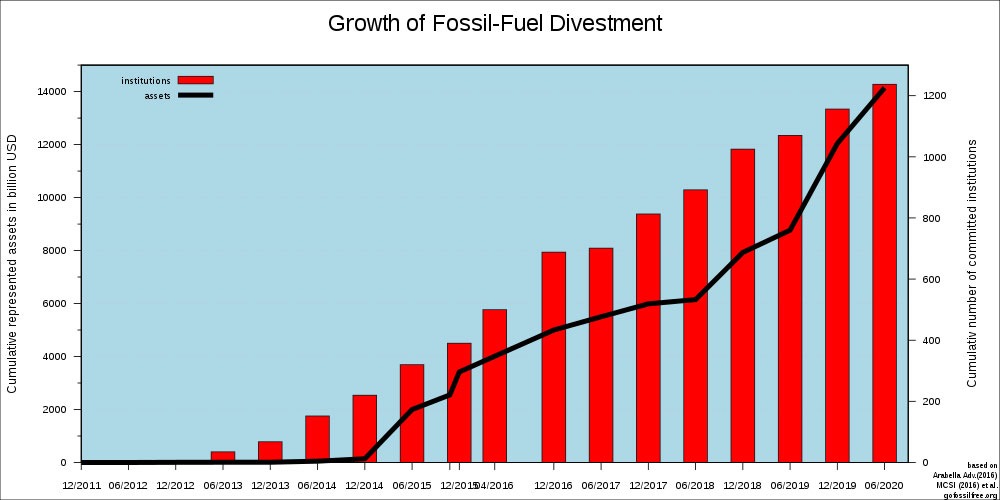
August 25, 2020; Triple Pundit and Harvard Magazine
This year, candidates backed by an insurgent slate called Harvard Forward, a group that advocates that the university, which has an estimated $40.9 billion endowment, divest itself of all fossil fuel assets, won three of the five open seats in annual elections for the Harvard Board of Overseers. This victory marks the first time in over 30 years that petition-backed candidates have won board seats. A total of 43,531 Harvard alumni voted in the election, up 18.5 percent from the year before.
The three successful petition-backed candidates were Thea Sebastian, a civil rights attorney; Margaret “Midge” Purce, a member of the US women’s national soccer team; and Jayson Toweh, a US Environmental Protection Agency analyst. Also winning election this year were Raphael Bostic, head of the Atlanta Federal Reserve, and Tracy Smith, chair of the Lewis Center of Art at Princeton and a former US poet laureate.
At NPQ, we’ve kept an eye on the fossil fuel divestment campaign at Harvard. At the end of last year, we wrote about a protest that took place at the Harvard-Yale football game. In February, Arts and Sciences faculty at Harvard overwhelmingly (179 in favor, 20 against) passed a motion that called on the university to divest from all fossil-fuel stock. In response, Harvard in April announced a very cautious 30-year plan to decarbonize—far short of what divestment advocates demanded.
Meanwhile, the fossil fuel divestment movement, which launched in 2012, has been growing internationally at a rapid pace. Today, it is estimated that institutions with a total of $14.61 trillion in assets have divested—which is the equivalent of roughly 40 percent of the $35 trillion-plus value of the entire US stock market—and up from $6.24 trillion two years ago. This has had real world impact. Just last week, after 92 years, ExxonMobil was delisted from the Dow Jones Industrial Average, a sign of the firm’s reduced economic importance.
This year’s election at Harvard marks the first seats won by petition candidates to the Board of Overseers since another divestment movement swept the United States. That movement sought to get universities, state pension funds, and others to sell off all assets of companies that earned profits doing business in apartheid-era South Africa. It’s often credited as a factor having contributed to that regime’s ultimate demise.
Back during the late 1980s, over multiple election cycles, four petition-backed candidates did win seats to Harvard’s Board of Overseers. The most famous petition candidate to get elected to the board during that period was the Archbishop Desmond Tutu. In 1991, another petition candidate, a fourth-year Harvard law student active in the divestment movement named Barack Obama, ran for a seat but fell short.
Sign up for our free newsletters
Subscribe to NPQ's newsletters to have our top stories delivered directly to your inbox.
By signing up, you agree to our privacy policy and terms of use, and to receive messages from NPQ and our partners.
Every year, Harvard alumni elect five members to the 30-member Board of Overseers; people elected serve staggered six-year terms. According to Harvard, the “Board probes the quality of Harvard’s programs and assures that the University remains true to its charter as a place of learning.” The board has operated continuously since 1642.
Typically, candidates for the Board of Overseers, which is often described as the second-highest governing body after the Harvard Corporation board, are nominated by the Harvard Alumni Association. However, candidates not recruited by the Alumni Association can run for election if they can obtain a sufficient number of alumni petition signatures.
What will happen now? Obviously, three seats out of 30 is only a tenth of the board, but the mere fact that these three are the first petition-backed candidates to win board seats in over 30 years surely increases their impact.
In a statement, Sebastian noted that, “This election is only the beginning: now the real work starts to help make Harvard a true leader on climate, responsible investing, racial equity, and disentangling our involvement with the unjust criminal-legal system.”
Toweh observed that the election “proves that alumni want Harvard to be a leader in the fight against the climate crisis.”
Beyond Harvard, the election is likely to be a shot in the arm for similar efforts on other campuses. A group called Yale Forward, for instance, is currently running a similar campaign to support a candidate for the Yale University’s board.—Steve Dubb













